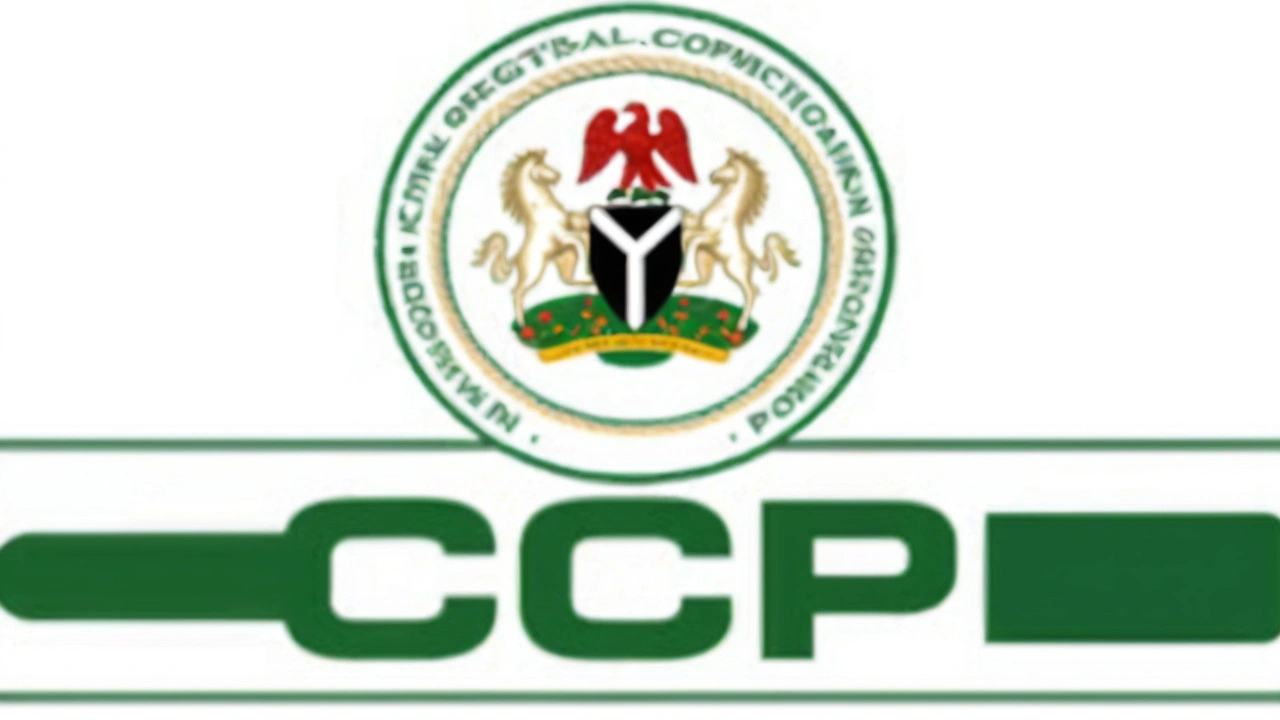FCCPC Unveils Coca-Cola Nigeria's Misleading Product Practices
The Federal Competition and Consumer Protection Commission (FCCPC) has concluded an extensive investigation into Coca-Cola Nigeria and the Nigerian Bottling Company (NBC), revealing several breaches in consumer transparency. Initiated back in June 2019, this inquiry examined the notable transition of sugar to non-nutritive sweeteners in Coca-Cola, Fanta, and Sprite. The investigation unveiled that the companies did not fully inform consumers about these significant changes, leading to a considerable breach in consumer trust and compliance with the Federal Competition and Consumer Protection Act (FCCPA).
The FCCPC's findings illuminated several instances where Coca-Cola and NBC employed misleading trade descriptions and questionable marketing tactics. Most prominently, the companies continued to market their products with claims such as “Original Taste, Less Sugar,” suggesting no significant change from the classic Coca-Cola. This practice effectively masked the fact that the beverage formulations had been notably altered, thus misinforming consumers. Such undisclosed changes were not limited to Coca-Cola but also popular brands like Fanta and Sprite. The lack of transparency from these major brands sparked significant concern among consumers and regulatory bodies alike.
Deceptive Packaging and Marketing Strategies
According to the FCCPC, one of the pivotal points of contention was the identical packaging used for different variants of products, notably the Limca Lime-Lemon flavored drink. This practice compounded the confusion and prevented consumers from making informed choices regarding their purchases. The investigation revealed that these strategies were not merely isolated incidents but consistent policies aimed at maintaining market share without appropriate disclosure to consumers.
The lack of distinct packaging for varied formulations added a layer of deception that the FCCPC found particularly troubling. The identical packaging of different variants meant that many consumers were unaware that they might be consuming products with significantly different ingredients than they believed. This situation undermined consumers' ability to make dietary choices best suited to their health needs and preferences, more so for those monitoring sugar intake for health reasons such as diabetes.
The Ramifications of the FCCPC's Findings
By December 2020, the commission had amassed substantial evidence against Coca-Cola Nigeria and NBC. This culminated in a final order issued on July 29, delineating the findings and the implications. The FCCPC identified a clear violation of the FCCPA through the use of misleading trade descriptions and unfair marketing practices. Initially, Coca-Cola and NBC had agreed to adopt a more transparent approach to their product descriptions. However, this agreement was later abandoned, further aggravating the situation and reflecting poorly on the companies' commitment to consumer transparency.
The commission's report also highlighted that Coca-Cola and NBC's marketing strategies misled consumers regarding various drinks, leading to significant consumer dissatisfaction and loss of trust. Although the companies had an opportunity to rectify their practices, their failure to adhere to the initial agreement resulted in the FCCPC's public admonishment. The investigation's conclusions have had broader implications on how consumers perceive prominent brands and the trust they place in product labels and advertisements.

Potential Abuse of Dominance and Regulatory Penalties
The FCCPC has also kept the door open for addressing potential abuse of dominance by Coca-Cola and NBC. This particular aspect of the investigation delves into whether the companies exploited their market position to the detriment of consumers and other competitors. This consideration is critical, given that such dominance might lead to a monopolistic control over the market, allowing said companies to dictate terms without due regard for consumer rights or fair competition.
This potential abuse falls under the scrutiny of the FCCPA and the Administrative Penalties Regulation of 2020. Should the FCCPC determine that Coca-Cola and NBC have indeed abused their dominant position, further penalties could follow. These may range from fines to more stringent regulatory oversight, aimed at ensuring that such breaches do not recur. The outcome of this ongoing consideration will be pivotal in setting a precedent for maintaining competitive practices and transparency standards in the market.
Impact on Consumers and Market Standards
The entire episode has spotlighted the significant impact of corporate practices on consumer rights and market standards. The revelations by the FCCPC underscore the necessity for transparency and ethical marketing, especially from major brands with widespread consumer reliance. The case has also ignited a broader conversation about the responsibilities of corporations towards their consumers, beyond just profit-making motives.
Consumers, especially in a market as vast and diverse as Nigeria, deserve truthful information to make informed choices. The confidence in brands like Coca-Cola, which hold significant market sway, hinges on their commitment to honesty and transparency. As this case demonstrates, any deviation from these ideals undermines consumer trust and invites regulatory scrutiny.
The actions of the FCCPC serve as a reminder to other corporations about the importance of upholding consumer protection laws. The regulatory body's proactive investigation and subsequent actions reflect an unwavering commitment to protect consumer interests and maintain fair market practices. For Coca-Cola and NBC, the fallout from this investigation could well extend beyond immediate penalties, affecting their brand reputation and consumer loyalty.
Lessons and Future Implications
The broader implications of the FCCPC’s findings could lead to more stringent regulations and oversight in the beverage industry and beyond. Companies may need to reassess their marketing strategies and product transparency measures to align more closely with consumer protection laws. This incident serves as a critical case study on the importance of ethical business practices and the role of regulatory bodies in enforcing these standards. It also highlights the need for continuous vigilance by consumers and watchdog organizations to hold corporations accountable.
For consumers, the outcome of this investigation underscores the power of regulatory bodies in safeguarding their rights and interests. It sends a clear message that misleading marketing and deceptive practices will not go unchecked. As for Coca-Cola and NBC, the path forward will likely involve rebuilding trust through sincere efforts in transparency and adherence to ethical marketing standards. The aftermath of this saga will be closely watched, not only by consumers but also by other corporations that might be re-evaluating their own practices in light of these developments.


Karthik Nadig
August 2, 2024 AT 18:33They've swapped sugar for hidden sweeteners and pretended nothing changed 😡! The regulators finally caught the lie, but the real question is who’s pulling the strings behind the brand’s glossy ads 😤. This is exactly the kind of deception that fuels distrust in our global markets 🌍.
Charlotte Hewitt
August 2, 2024 AT 20:46Sounds like another corporate cover‑up.
Jane Vasquez
August 2, 2024 AT 23:00Wow, the “original taste, less sugar” claim is a classic bait‑and‑switch, and it’s infuriating to see a household name pull a fast one on everyday consumers 😒. They act like they’re championing health while sneaking in artificial additives that most people can’t even pronounce. What’s worse is the identical packaging – it’s a stealthy tactic to keep the average shopper clueless. If you’re watching your sugar intake for medical reasons, this deceit could have real health repercussions. The FCCPC stepping in is a good sign, but the damage to brand trust is already done. Let’s hope they wipe the slate clean and stop treating us like lab rats.
Hartwell Moshier
August 3, 2024 AT 01:13They changed the formula and didn’t say it they just kept the same label and that is not ok
Jay Bould
August 3, 2024 AT 03:26It’s disappointing to see a brand that’s been part of our celebrations turn on us like this. Transparency matters, especially when drinks are a part of festivals and daily life. Hopefully the regulator’s action will push them to be honest with us, because we deserve to know what’s really inside our bottles.
Mike Malone
August 3, 2024 AT 05:40The recent FCCPC verdict against Coca‑Cola Nigeria serves as a stark reminder that corporate narratives often mask underlying commercial motives. When a multinational alters a flagship product’s composition, the ethical obligation to disclose such changes becomes paramount. The substitution of sucrose with non‑nutritive sweeteners, while potentially reducing caloric content, simultaneously introduces ingredients that may affect consumer health in unforeseen ways. Moreover, the decision to retain identical packaging across divergent formulations subverts the principle of informed consent, effectively depriving the purchaser of meaningful choice. From a jurisprudential perspective, the Federal Competition and Consumer Protection Act explicitly mandates honest trade descriptions, a standard evidently breached in this case. The regulatory body’s investigative timeline, commencing in 2019 and culminating in 2020, underscores the diligence required to uncover systematic obfuscation. It is also noteworthy that the initial agreement for greater transparency was later abandoned, suggesting a calculated effort to evade accountability. Such conduct not only erodes public trust but also distorts market competition, granting the dominant firm an unfair advantage. In an economy where sugar‑related health concerns are rising, the concealment of sweetener swaps could exacerbate public health challenges. Consumers, particularly those managing conditions like diabetes, rely on accurate labeling to make dietary decisions; the mislabeling therefore carries tangible risk. The potential for abuse of dominance, as hinted by the commission, invites further scrutiny into whether market power is being wielded to suppress rival offerings. Should additional penalties be imposed, they may set a precedent that rebalances power dynamics between multinational corporations and local regulators. Ultimately, the episode illustrates the indispensable role of vigilant civil institutions in safeguarding consumer interests against corporate overreach. It also reminds citizens that vigilant consumption habits, coupled with demand for transparency, can drive systemic change. As the saga unfolds, one can only hope that the lessons learned will catalyze a broader movement toward ethical marketing across the beverage industry.
Pierce Smith
August 3, 2024 AT 07:53I appreciate the thorough analysis and agree that stronger oversight is essential; collaboration between regulators and consumers will indeed pave the way for more honest practices.
Abhishek Singh
August 3, 2024 AT 10:06Another day, another “we care about health” lie they slap on a can 😒 they think we don’t read the fine print.
hg gay
August 3, 2024 AT 12:20It’s heartbreaking to think about families who trust these brands for daily hydration and suddenly discover hidden chemicals lurking in their drinks 😢. Your health decisions deserve respect, and the lack of clear labeling undermines that respect profoundly. I stand with anyone who feels betrayed by such corporate tactics, and I hope that the FCCPC’s intervention sparks genuine reform 🌟. Transparency isn’t just a legal requirement; it’s a moral duty to the people who keep buying your product. Let’s keep the conversation alive and hold them accountable together 🤝.
Owen Covach
August 3, 2024 AT 14:33Bold move by the regulators forcing the soda giant to face the music